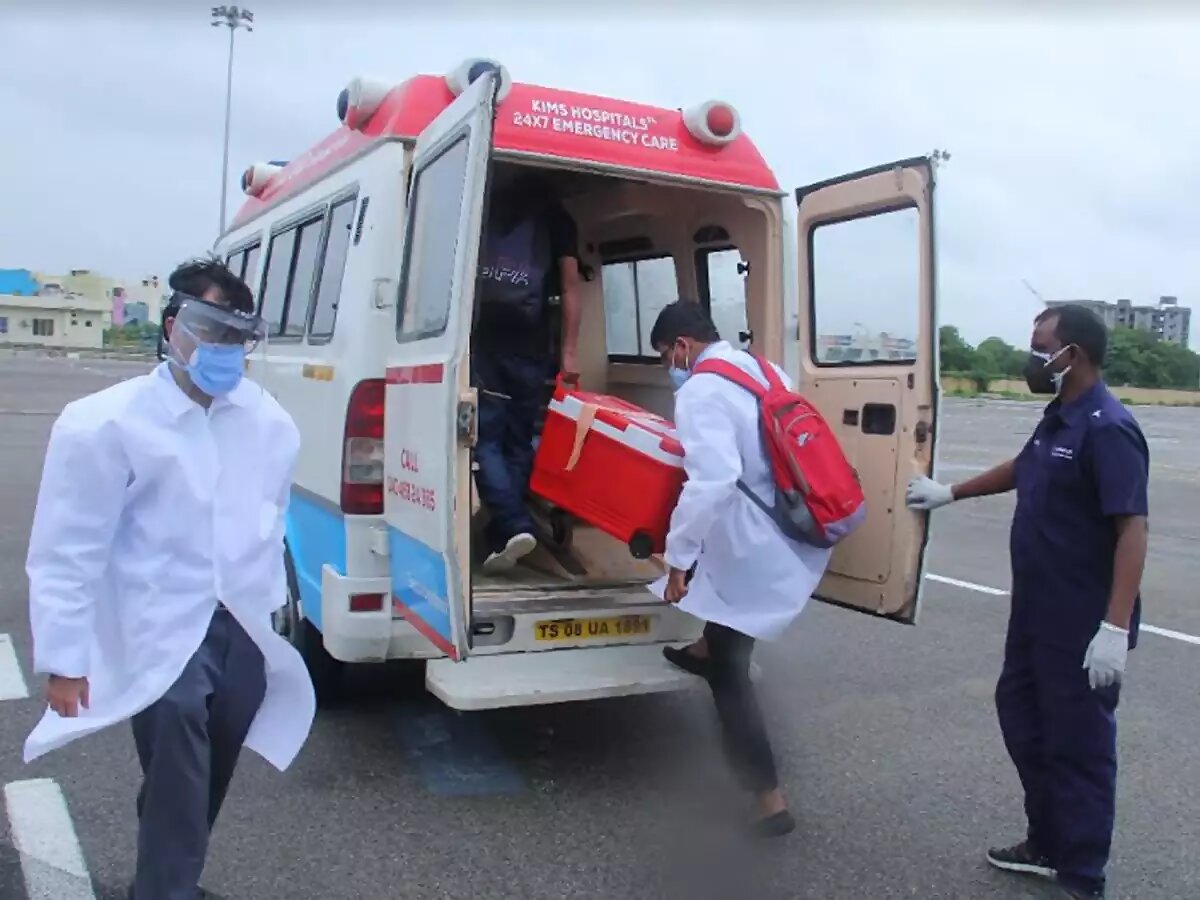On Wednesday morning, a remarkable medical feat took place as a harvested human heart was airlifted from Nagpur to Pune in an Indian Air Force (IAF) plane. The heart came from a brave woman named Shubhangi Gannyarpawar, who was declared brain dead. She was just 31 years old and lived in Nagpur with her husband and young daughter.
Shubhangi was admitted to a hospital in Nagpur on July 20 after experiencing a severe headache. Doctors discovered that she had severe blood clotting in her brain, and sadly, she was declared brain dead. However, her family decided to donate her organs, a decision that would save multiple lives.
The heart was sent to Pune, more than 700 kilometers away, in a race against time. The Indian Air Force's AN-32 aircraft was used to transport the vital organ, and a "green corridor" was created by the civil administration to ensure the heart reached its destination as quickly as possible.
The recipient of this life-saving heart was a male air warrior, 39 years old, admitted to the Army Institute of Cardio-Thoracic Sciences (AICTS) in Pune. The transplant was performed successfully later that day.
Thanks to the collaboration between the IAF Traffic Police in Nagpur and Pune, as well as the SC Provost Unit, the green corridor facilitated the swift transportation of the heart. A green corridor is a special initiative to expedite organ transplants and ultimately save lives. It involves coordinating with the traffic department to ensure the organ reaches its destination in a fraction of the time it would usually take.
Shubhangi's selfless act of organ donation helped not only the heart recipient in Pune but also three others in Nagpur, who received her liver and two kidneys. Her kindness and the rapid response of the medical teams and IAF personnel showcase the remarkable potential of teamwork and quick action in saving lives through organ transplants.
The Lifesaving Gift: The Importance of Organ Donation
Organ donation is a noble act that can profoundly impact and transform lives. It involves the selfless act of giving one's organs after death to help others in need. The importance of organ donation cannot be overstated, as it can make a significant difference in the lives of recipients and their families.
1. Saving Lives and Enhancing Quality of Life: Organ donation gives hope to patients who are suffering from end-stage organ failure. For those awaiting a transplant, an organ donation can be a lifeline, offering them a chance to survive and regain their health. Organ transplantation can drastically improve the recipient's quality of life, allowing them to return to their families, jobs, and normal activities.
2. Use Cases and Medical Advancements: Organ transplantation has come a long way in medical science. Successful transplants of organs like the heart, liver, kidney, lungs, and pancreas have become routine procedures, thanks to advancements in surgical techniques and organ preservation. By donating organs, one person has the potential to save multiple lives and improve the well-being of several individuals.
3. Overcoming Organ Shortage: The demand for organs far exceeds the supply, leading to a shortage of available organs for transplantation. Organ donation plays a vital role in bridging this gap and providing hope to thousands of patients on transplant waiting lists. By choosing to be an organ donor, one can contribute to mitigating this critical shortage and positively impact many lives.
4. Building Stronger Communities: Organ donation fosters a sense of community and compassion among individuals. It encourages people to think beyond themselves and act for the greater good. The act of donation can inspire others to follow suit and create a chain of positive actions within society.
5. Legacy of Giving: Organ donation leaves behind a lasting legacy of generosity and kindness. Donors and their families can find solace in knowing that their loved one's organs have given a new lease of life to others in need. It's a powerful way to leave a positive impact on the world even after one's passing.
6.Unrealized Potential of Donating Organs: Choosing not to donate organs after death results in the loss of an opportunity to save lives. Organs that could have been used to give someone a chance at life go unused and eventually decompose, with no productive outcome for human life. Organ donation provides a way to give back to society, even in one's final moments, by offering the gift of life to those in dire need.
Organ donation is an act of immense generosity that has the power to transform the lives of those in need. It is a testament to the compassion and power of humanity. By opting to become an organ donor, individuals can play a crucial role in making a positive impact on society and leaving a legacy of hope and life for others. It is a gift that continues to give long after one's time on earth, making it one of the most profound and selfless acts a person can undertake.

 Organ donation is a noble act that can profoundly impact and transform lives. It involves the selfless act of giving one's organs after death to help others in need. The importance of organ donation cannot be overstated, as it can make a significant difference in the lives of recipients and their families.
Organ donation is a noble act that can profoundly impact and transform lives. It involves the selfless act of giving one's organs after death to help others in need. The importance of organ donation cannot be overstated, as it can make a significant difference in the lives of recipients and their families.










.jpeg)

.jpeg)










.jpg)




.jpg)

